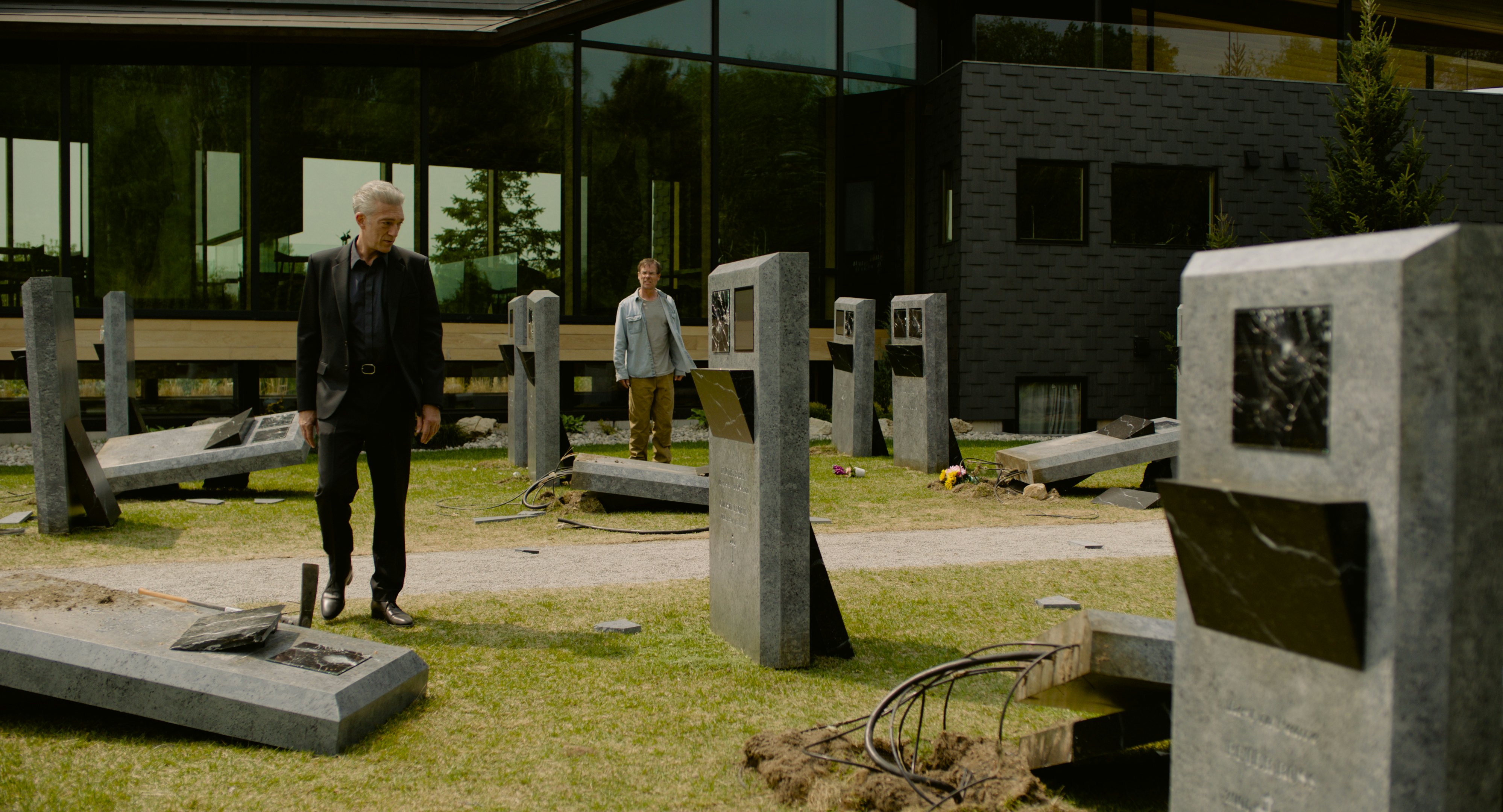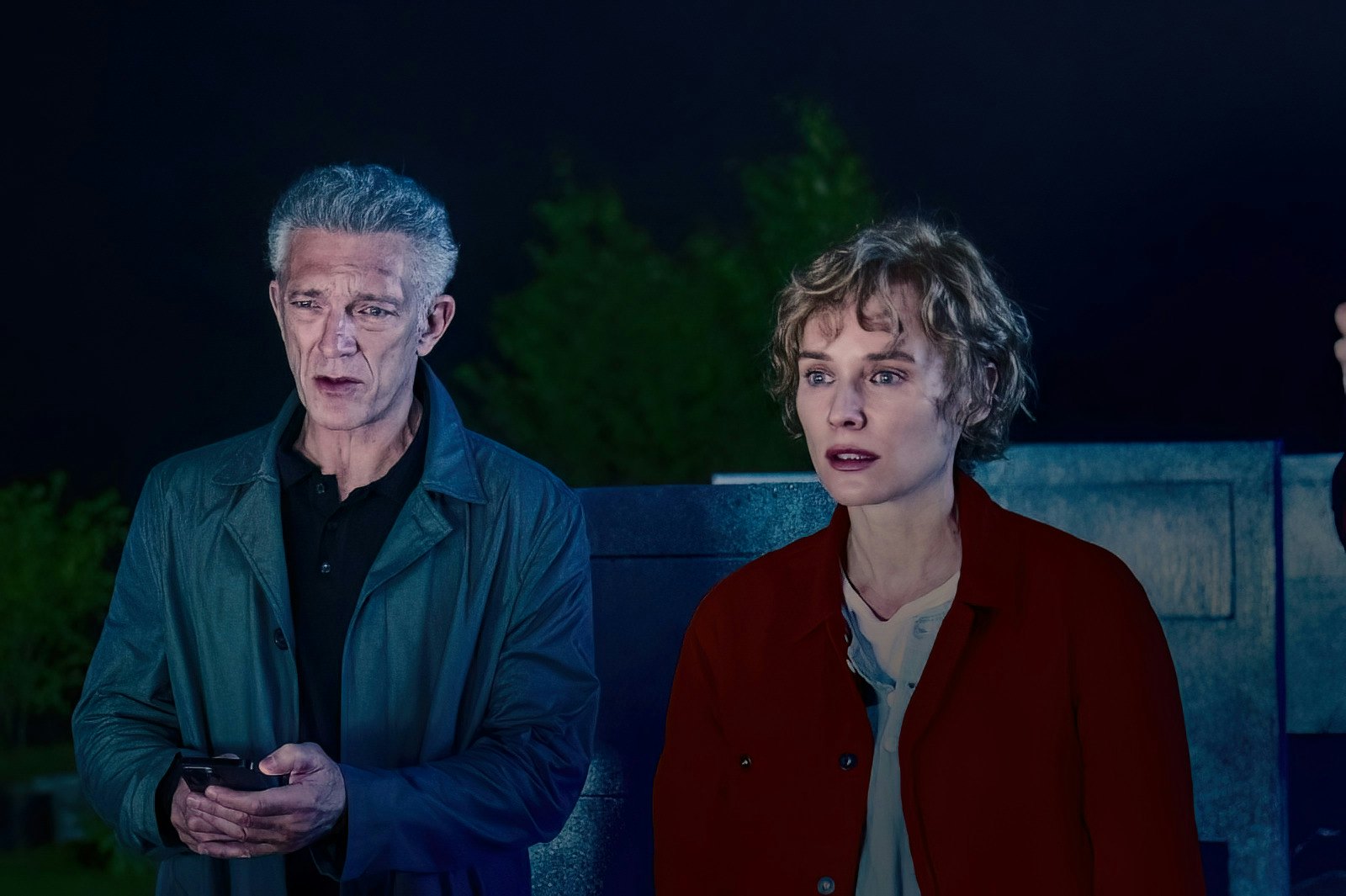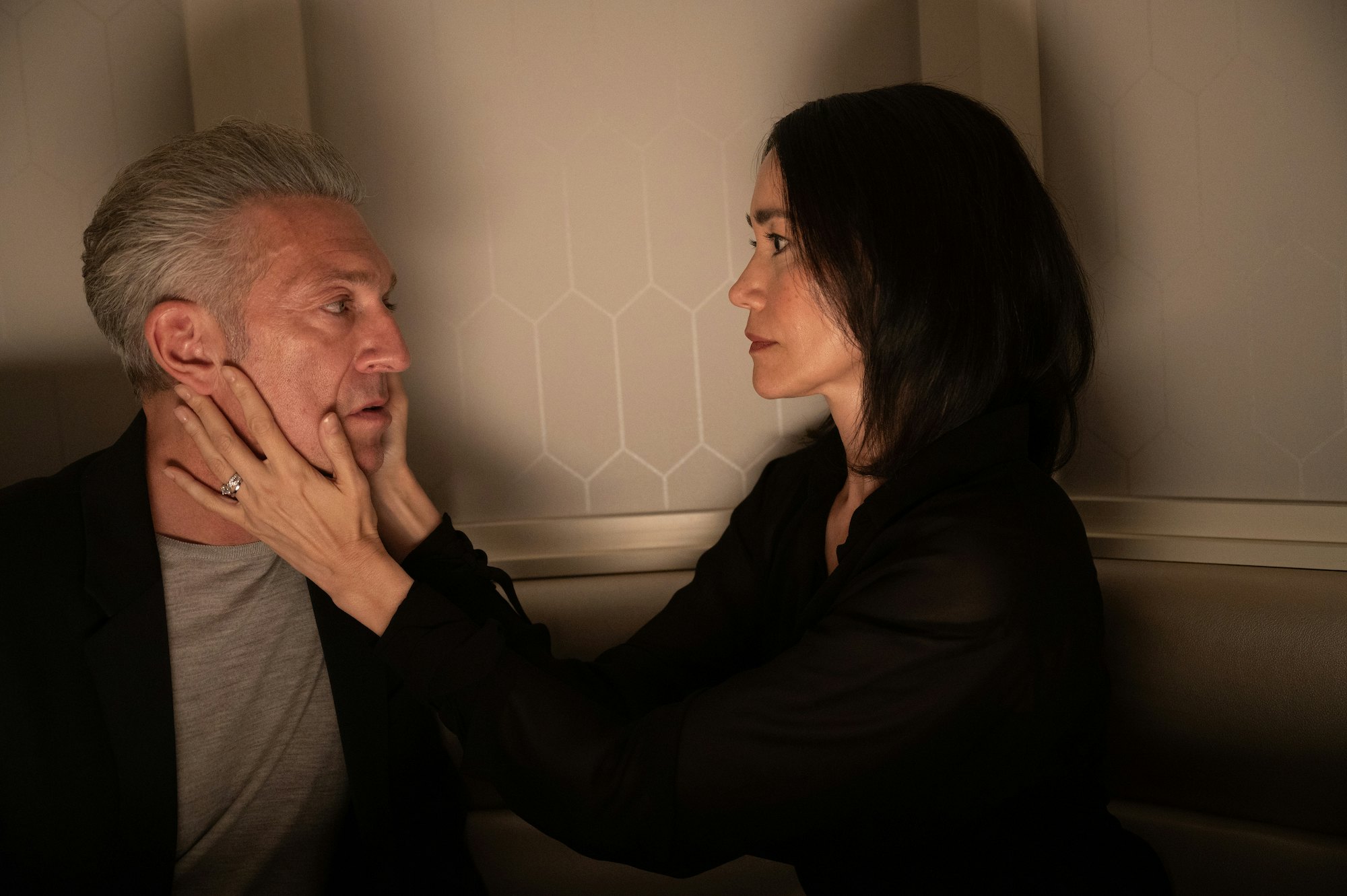
David Cronenberg once told The New York Times Magazine that his 1986 body horror classic The Fly was not in fact a metaphor for AIDS, but a metaphor for death. “We've all got the disease — the disease of being finite. Death is the basis of all horror,” the filmmaker said.
Fascination with how the human body can degrade and break down, and a fixation on mortality, define many of Cronenberg’s body-horror films. But never has that fixation on death and the finite been more literal than in his latest thriller, The Shrouds, Cronenberg’s most personal, and most strangely subdued and alienating, movie yet.

In The Shrouds, which is inspired by the death of his wife Carolyn Cronenberg from cancer, Vincent Cassel (with a coif and style that makes him look eerily like David Cronenberg) stars as an industrialist named Karsh who is not just mourning the loss of his wife Becca (Diane Kruger) to cancer, he’s haunted by her. Becca appears in Karsh’s dreams, naked and slowly falling apart as the disease literally eats away at her body. First it takes her left breast (his favorite, he bemoans to Dream Becca), then it takes her left arm after doctors discover the cancer had spread. Her bones become brittle to the point that an attempt at sex with Dream Becca results in her breaking her hip. In one of his later visions, he sees her limping into the room, describing the steel plates and bolts that are holding her frail body together. She’s a shadow of the woman he loved, but he cannot look away — even after her death.
Consumed by his grief, Karsh invents a revolutionary technology, GraveTech, which allows him to watch over her corpse in the grave. It’s accomplished by the Shroud, a sort of wearable X-ray fabric that envelops the body and connects to a screen attached to the gravestone. Cronenberg (via Karsh) is literally watching his wife’s corpse, much like his audiences watch him make living corpses of his characters. He’s a “graveyard voyeur,” Becca’s twin sister Terry (also Kruger, in a bad wig) accuses, and he can’t deny it. In fact, he owns it, turning the GraveTech technology into a small enterprise, with plans to launch it in burial sites around the world. That is, until the graveyard containing Becca gets vandalized, leading Karsh on an investigation that sends him on a downward spiral of conspiracy theories and strange medical mysteries.

It’s hard to recommend The Shrouds to anyone who is a fan of Cronenberg’s works. It’s a movie that mostly takes place in sterile, minimally decorated rooms, with people talking about things they have done, or will do. It’s a movie in which its characters become consumed by conspiracy theories — most of them presented by Guy Pearce’s nebbish Maury, Karsh’s tech consultant and Terry’s ex-husband — that chip away at the film’s already-fragile reality. It’s a movie in which the most gruesome scenes are of Becca’s decaying corpse, or the visions of Dream Becca slowly losing limbs and body parts from surgery and chemotherapy. The worst kind of body horror, Cronenberg seems to say, is seeing your loved ones waste away from an illness as debilitating and debasing as cancer.
But even with its oddly stilted dialogue and slow, bordering on lethargic, pace, The Shrouds maintains a dry sense of humor — though it’s a little unclear if the comedic moments are intentional. Every scene with Pearce’s paranoid Maury feels like it’s played for laughs, and even the steamy sex scenes between Cassel’s Karsh and Kruger’s Terry (prompted by Terry getting turned on by talking about conspiracy theories) seems like a weirdly comedic play on the sex scenes from Cronenberg’s Crash. Every scene between Karsh and prospective client Soo-Min (a stoic-faced Sandrine Holt), with whom he falls into a romantic relationship, plays out like a cold business transaction. Perhaps the awkwardness of the film is just Cronenberg’s clumsy way of dealing with his grief, or perhaps there’s a gallows humor to this odd grieving process.
The Shrouds is undoubtedly an unconventional movie for Cronenberg. But it’s also a self-reflective one; an awkwardly intimate, therapeutic exercise for the director, who subverts the expectations for his films to try to reach for something grander and more profound. The body horror gives way to the real horrors of cancer, and any shocks are reserved for eerie scenes with an AI avatar (also voiced by Kruger), who taunts Karsh’s grief. The film ends on an open question, leaving you with a dissatisfied, unresolved feeling. Not everything that Cronenberg tries with the film lands. But The Shrouds still sits with you, showing Cronenberg in conversation with the rest of his filmography in fascinating ways. Maybe grief, in all its complexities, is just as difficult to understand and unpack as The Shrouds.







